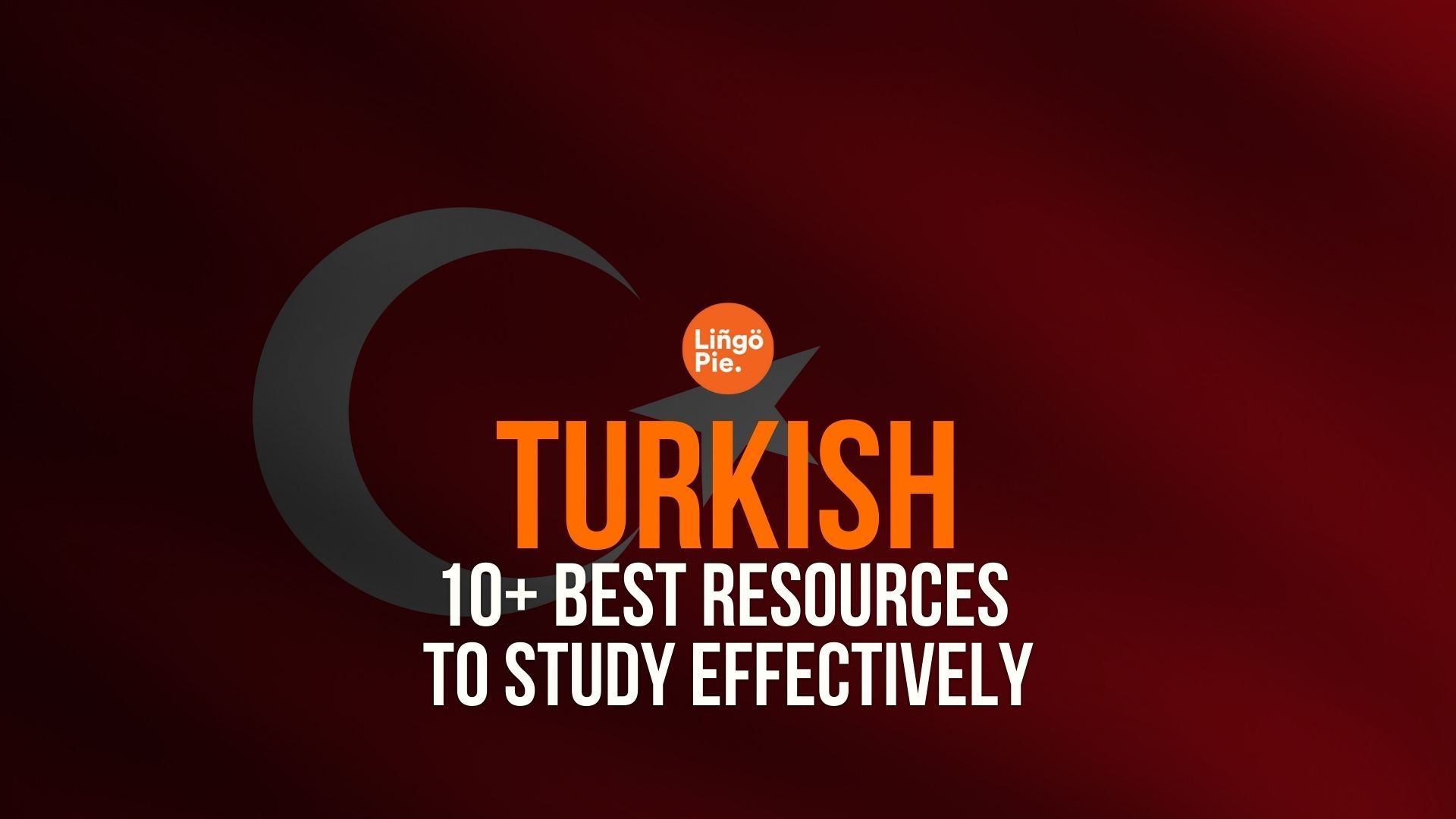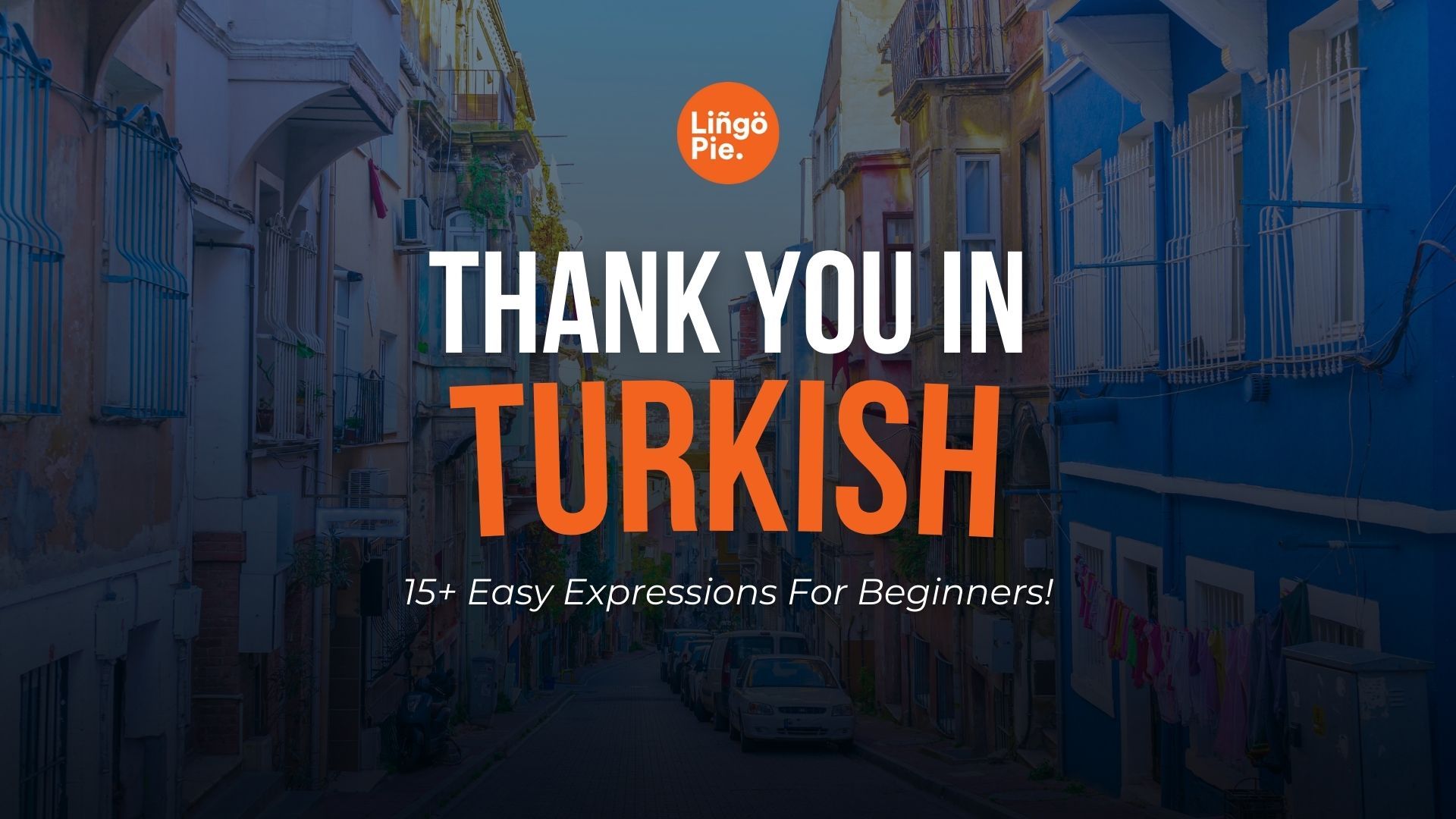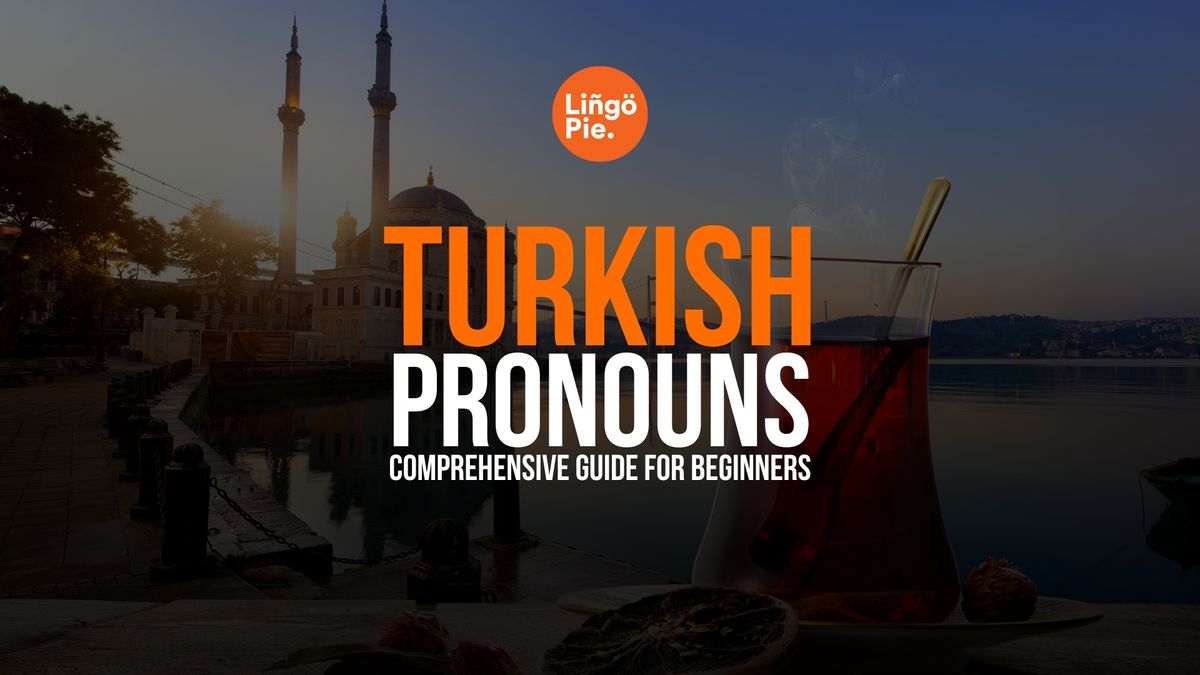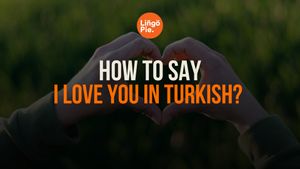Have you ever noticed how much pronouns shape the way we communicate? As a native Turkish speaker, I’ve always found it fascinating that Turkish doesn’t have gendered pronouns like “he” or “she”—something that learners often find surprising. However, what truly makes Turkish pronouns unique is the way they shift depending on formality, which can completely change the tone of a conversation.
I’ve seen that , whean learning turkish, learners struggle with pronoun usage, especially when navigating formal and informal settings. Using the wrong pronoun in a professional or social context can make a sentence sound overly casual or, in some cases, even impolite. But once you understand these nuances, pronouns become a powerful tool for expressing yourself naturally in Turkish.
In this article, we’ll break down how Turkish pronouns work, what makes them different from other languages, and how to use them correctly in various situations. By the end, you’ll have a stronger grasp of Turkish pronouns, helping you sound more fluent and confident in your conversations.
- Common Turkish Idioms
- Gaming Terms In Turkish
- Curse Words In Turkish

1. Personal Pronouns In Turkish

Personal pronouns are words we use to talk about people or things. In Turkish, personal pronouns are pretty simple, but there are some important differences to keep in mind, especially when it comes to formality and the way we address others.
Here’s a breakdown of Turkish personal pronouns:
- I – Ben
- You (informal) – Sen
- He/She/It – O
- We – Biz
- You (plural/formal) – Siz
- They – Onlar
Examples
I – Ben
- Used when talking about yourself.
- Example: Ben öğrenciyim. (I am a student.)
You (informal) – Sen
- Used when talking to someone you know well, like a friend or family member.
- Example: Sen nasılsın? (How are you? – talking to one person informally)
He/She/It – O
- This pronoun is the same for "he," "she," and "it." It’s used when talking about someone or something else.
- Example: O öğretmen. (He/She is a teacher.)
- Example: O araba çok güzel. (That car is very nice.)
We – Biz
- Used when talking about yourself and others (plural).
- Example: Biz Türkiye’de yaşıyoruz. (We live in Turkey.)
You (plural/formal) – Siz
- Used to show respect or when talking to a group of people, even if you know them well.
- Example: Siz nasılsınız? (How are you? – talking to one person formally or to multiple people)
They – Onlar
- Used when talking about more than one person or thing.
- Example: Onlar çok çalışıyorlar. (They are working very hard.)
In Turkish, pronouns are often not needed because the verb itself shows who the subject is. This makes Turkish a "pro-drop" language, where the subject is understood from the verb form.
- Ben (I): Geldim. (I came.) – The verb geldim shows it's "I."
- Sen (You - informal): Geldin. (You came.) – The verb geldin shows it's "you" (informal).
- O (He/She/It): Geldi. (He/She/It came.) – The verb geldi works for all three.
- Biz (We): Geldik. (We came.) – The verb geldik shows it's "we."
- Siz (You - plural/formal): Geldiniz. (You came.) – The verb geldiniz indicates "you" (plural/formal).
- Onlar (They): Geldiler. (They came.) – The verb geldiler shows "they."
2. Possessive Pronouns In Turkish
Possessive pronouns show ownership, telling us who something belongs to. In Turkish, these pronouns change based on the person who owns the object and whether the object is singular or plural.
Here are the possessive pronouns in Turkish:
- My – Benim
- Your (informal) – Senin
- His/Her/Its – Onun
- Our – Bizim
- Your (plural/formal) – Sizin
- Their – Onların
Examples
Benim (My)
- Benim kitabım. (My book.)
- Benim arabam çok hızlı. (My car is very fast.)
Senin (Your - informal)
- Senin telefonun nerede? (Where is your phone?)
- Senin evin çok güzel. (Your house is very beautiful.)
Onun (His/Her/Its)
- Onun adı Ahmet. (His name is Ahmet.)
- Onun kedisi çok sevimli. (Her cat is very cute.)
Bizim (Our)
- Bizim bahçemiz çok büyük. (Our garden is very big.)
- Bizim evimiz çok rahat. (Our house is very comfortable.)
Sizin (Your - plural/formal)
- Sizin kitabınız çok ilginç. (Your book is very interesting.)
- Sizin arabalarınız burada mı? (Are your cars here?)
Onların (Their)
- Onların köpeği çok eğlenceli. (Their dog is very fun.)
- Onların evleri burada. (Their houses are here.)
Read Also:

3. Demonstrative Pronouns In Turkish
Demonstrative pronouns are used to point out specific things or people. In Turkish, these pronouns help to show what we are referring to, based on distance (close or far). Here are the common demonstrative pronouns in Turkish:
- Bu: "This" (near the speaker)
- Şu: "That" (near the listener, or middle distance)
- O: "That" (far from both)
- Bunlar: "These" (close to the speaker)
- Şunlar: "Those" (a little farther away)
- Onlar: "Those" (far from both)
The Difference Between "Bu" (This) and "Şu" (That)
Bu (This)
- Used for things or people that are close to the speaker (in space or time).
- Example: Bu kitap çok ilginç. (This book is very interesting.)
- Bu is used when referring to something near you or something that is physically close.
Şu (That)
- Used for things or people that are not far but still not very close. It's a middle distance, between you and something else.
- Example: Şu araba çok pahalı. (That car is very expensive.)
- Şu points to something a little farther away, but still within sight.
O (That)
- Used for things or people that are far from both the speaker and listener. It is used to refer to something that is not close at all.
- Example: O ev çok büyük. (That house is very big.)
Examples for "These" and "Those"
Bunlar (These)
- Used to refer to things or people that are close to the speaker (plural).
- Example: Bunlar benim arkadaşlarım. (These are my friends.)
Şunlar (Those)
- Used to refer to things or people that are not far, but a little farther away than "Bunlar."
- Example: Şunlar bizim kitaplarımız. (Those are our books.)
Onlar (Those)
- Used for things or people that are far from both the speaker and listener.
- Example: Onlar benim eski ayakkabılarım. (Those are my old shoes.)
4. Reflexive Pronouns In Turkish

Reflexive pronouns are used when the subject and the object of a sentence are the same, meaning the action is done to oneself. In Turkish, reflexive pronouns are formed by adding "kend-" to the regular pronouns.
Here are the reflexive pronouns in Turkish:
- Kendim – Myself
- Kendin – Yourself (informal)
- Kendisi – Himself/Herself/Itself
- Kendimiz – Ourselves
- Kendiniz – Yourselves (plural/formal)
- Kendileri – Themselves
Examples
Kendim (Myself)
- Kendimi seviyorum. (I love myself.)
- Kendim için yemek yapacağım. (I will cook for myself.)
Kendin (Yourself – informal)
- Kendine dikkat et! (Take care of yourself!)
- Kendinize güvenmelisiniz. (You should trust yourself.)
Kendisi (Himself/Herself/Itself)
- Kendisiyle gurur duyuyor. (He/She/It is proud of himself/herself/itself.)
- Kendisi buradaydı. (He/She was here.)
Kendimiz (Ourselves)
- Kendimizi ifade etmek zor. (It’s hard to express ourselves.)
- Kendimize güveniyoruz. (We trust ourselves.)
Kendiniz (Yourselves – plural/formal)
- Kendinize iyi bakın! (Take care of yourselves!)
- Kendinizi tanıyın. (Get to know yourselves.)
Kendileri (Themselves)
- Kendilerini savundular. (They defended themselves.)
- Kendilerine dikkat etmeleri gerekiyor. (They need to take care of themselves.)
Read Also:

5. Interrogative Pronouns In Turkish
Interrogative pronouns are used to ask questions. These pronouns help us get information about people, things, places, reasons, and choices. Here are the most common interrogative pronouns in Turkish:
- Who? – Kim?
- What? – Ne?
- Which? – Hangi?
- Where? – Nerede?
- Why? – Neden?
Examples
Kim? (Who?)
- Kim geliyor? (Who is coming?)
- Kim bu mesajı gönderdi? (Who sent this message?)
Ne? (What?)
- Ne yapıyorsun? (What are you doing?)
- Bu ne? (What is this?)
Hangi? (Which?)
- Hangi filmi izlemek istersin? (Which movie would you like to watch?)
- Hangi takımı tutuyorsun? (Which team do you support?)
Nerede? (Where?)
- Nerede yaşıyorsun? (Where do you live?)
- Anahtarlarım nerede? (Where are my keys?)
Neden? (Why?)
- Neden üzgünsün? (Why are you sad?)
- Neden gelmedin? (Why didn’t you come?)
6. Indefinite Pronouns In Turkish
Indefinite pronouns are used to refer to people or things in a general or vague way, without specifying who or what exactly. In Turkish, these pronouns help express ideas like "someone," "anything," or "nothing" when you don’t have a specific person or object in mind.
Here are some common indefinite pronouns in Turkish:
- Someone/Anybody – Birisi
- No one/Nobody – Hiç kimse
- Anything – Bir şey
- Nothing – Hiçbir şey
Examples
Birisi (Someone/Anybody)
- Birisi kapıyı çaldı. (Someone knocked on the door.)
- Birisi telefonunu unuttu. (Someone forgot their phone.)
Hiç kimse (No one/Nobody)
- Hiç kimse gelmedi. (No one came.)
- Hiç kimse bu filmi beğenmedi. (Nobody liked this movie.)
Bir şey (Anything)
- Benimle bir şey konuşmak ister misin? (Do you want to talk about anything with me?)
- Bir şey alabilir miyim? (Can I get anything?)
Hiçbir şey (Nothing)
- Hiçbir şey anlamadım. (I understood nothing.)
- Hiçbir şey yok. (There is nothing.)
Read Also:

Conclusion
In this guide, we've covered the essential Turkish pronouns, from personal and possessive to reflexive, demonstrative, interrogative, and indefinite pronouns. Understanding these pronouns is crucial for building strong sentences and making your Turkish sound natural and clear.
If you're looking to improve your Turkish even more, I highly recommend using Lingopie. It's an excellent platform that allows you to learn Turkish through real TV shows and movies. You'll get to see these pronouns in action and understand how they're used in everyday language, all while having fun.
Try Lingopie today to start learning Turkish in an immersive way!










